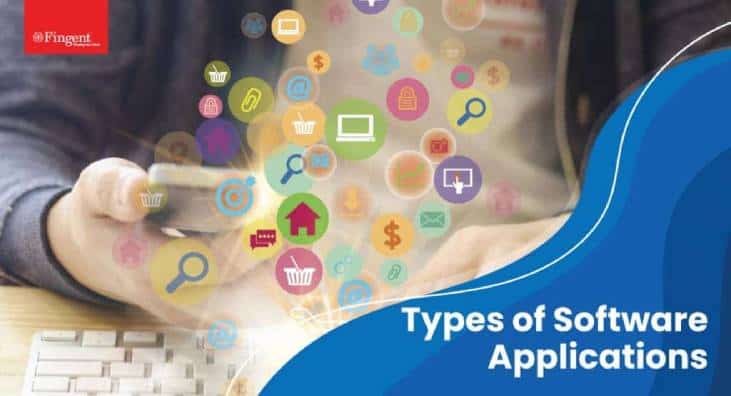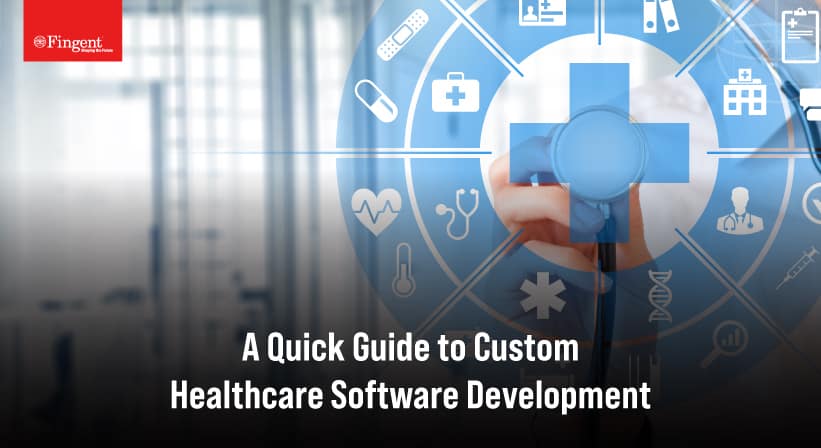Is It Time For Your Business To Think Beyond Home-grown Software Solutions?
Home-grown might be the way to go when it’s to be put on your dinner table, but does it apply to your business as well?
The need for complete digitization of business processes has become a necessity in today’s day and age. Due to this demanding criterion, some businesses have taken it upon themselves to cultivate their own personal, home-grown software programs. This has proved to be exponentially advantageous to some businesses. The important question here is: Although your home-grown software helped you take a big step forward, is it going to hold up to other demands of the future?
What Is Home-Grown Software?
Home-grown software, also known as legacy software, is generally a custom-tailored software program fabricated by a consumer or software development team to complete business processes. It is typically created internally from scratch, and the reason for its creation is the lack of suitable commercial packages that fit a specific business need. These programs are affordable and can be extremely handy.
Although home-grown technology has proven to be an excellent path to customize business processes and cut costs in the past, it does not hold the same weight in the incessantly evolving market integrated with evolving advanced technology. The world’s capacity for technology and innovation is rapidly increasing, which places a lot of pressure on businesses that aim to progress. Due to this rise in customer expectations, most businesses are forced to migrate from their old home-grown software to modern cloud-based software.
Is It Time To Upgrade Your Home Grown Software Or Replace It?
Most software tends to fall apart over time, whether it is due to the changing market or its inability to scale as businesses grow. When this happens, you are faced with two choices: to either upgrade your software program or completely replace it. Here are a few indicators to look out for if you are not sure when is the right time to update or replace your legacy software:
- Unending Updates: If the “system update” notification starts popping up too many times, it’s time to consider an upgrade. When a system updates itself, it needs to shut down completely, and this directly affects the productivity of your employees. If there is an inconsistent workflow, motivation to work dies down.
- Security Scares: If your legacy software is incapable of encrypting and protecting your business data, you can potentially become a target for hackers and other security threats. Hence, security is a vital factor in determining whether you need to replace your software or update it.
- Trendy Technology: Analyze if your legacy software can keep up with current technology. If your home-grown software is unable to compete with modern technology and the technology it uses to run is outdated, finding personnel or employees to maintain it becomes close to impossible. This will add to your expenses and ultimately result in a business loss.
Read more: Take steps to modernize your applications before they fall apart. Here are excerpts from a CTO on Legacy Application Migration!
Technical Debt
Technical debt, also known as tech debt, is the cost businesses pay when they do not fix problems that will affect them in the future. It is essentially the price you pay for not foolproofing your business and its aspects. Tech debts are generally caused by insufficient information about company needs, pressure to release software quicker with quality checks, and underestimating the need for quality codes.
It can be said that they are shortcuts taken during software development; they tend to accumulate over time and can affect business. Technical debts take the form of codes that are difficult to read, maintain, and scale or technical infrastructure that is outdated and in need of updating. Postponing the process of adding extra features and maintaining poor records of documentation are also forms of shortcuts.
Consequences Of Technical Debt
There are several consequences of tech debt: increased cost for fixing problems that may arise; lower quality of service leading to poor customer service; tainting company image and reputation; stunted scaling, which leads to stagnant business; death of innovation and integration; poor security; obstructed workflow resulting in lower employee morale; and finally, overall increased risks. These consequences cannot be overlooked because if you ignore their existence in the beginning, they will stack up and slowly poison your business. Although cutting costs in the development phase of your home-grown software may prove to be economical initially, it is bound to cost you more money to repair in the long run. The average cost overrun of an IT project, according to the Harvard Business Review article “Why Your IT Project May Be Riskier Than You Think,” is 27%.
Integration For the Future
Every business owner plans their business with the bigger picture in mind. It is no surprise that the path of technology is decked with Artificial Intelligence and Machine Learning, among many other advanced technologies. When creating software, it is of utmost importance to code it with features that help it integrate with other systems and advanced technology.
As a business owner, it is wise to keep all the cards on your side, and the advantages of Artificial Intelligence and Intelligence Automation cannot be overemphasized. The homegrown system you create must have the capability to sync with these evolving applications and intelligence tools. If you are not willing to completely abandon your legacy software and wish to update it instead, remember to consult the right professionals who can help you modernize your system to be up-to-date with evolving technologies and allow seamless incorporation.
Creating and maintaining the perfect home-grown software can be quite challenging. Hence, most business owners prefer to partner up with a reliable service provider to meet their business needs. Developing custom software that targets your specific needs and is customized to cater to them is beneficial for your business.
Just remember to be mindful of the choices you make while developing it. If you sense your legacy software falling short and notice that it is time for change, be bold and take that leap. Whether it is to replace the home-grown system or update it, keep your business’s future in mind and make your decision.
Talk to our experts and allow us to help you figure out the best solution for your business.
Stay up to date on what's new

Recommended Posts

20 Dec 2023 B2B
Driving Smart and Sustainable Agriculture with Customized Technology!
As the world grapples with the challenges of climate change, soil degradation, and resource scarcity, agricultural organizations find themselves at a critical juncture. The urgency for adopting sustainable farming practices,……

08 Sep 2023 Education Healthcare
Types of Application Software: A Detailed Guide for 2024
Types of Application Software: Guide for 2025 Table of Contents Understanding Application Software: Types and Business Benefits What is Application Software? Examples of Application Software Difference between System Software and……

22 Jun 2023 Healthcare B2B
Custom Healthcare Software Development – Ultimate Guide!
The world of technology keeps evolving and waits for no one, so it is our responsibility to keep up with it rather than fall behind. The healthcare industry has for……

20 Jan 2023 B2B
Build or Buy a Software Solution: Know Your Options!
The right software can serve as a growth catalyst for your business. A robust software solution can empower your team to work more efficiently, better serve your clients, and optimize……
Featured Blogs
Stay up to date on
what's new















 US
US Insurance
Insurance









































